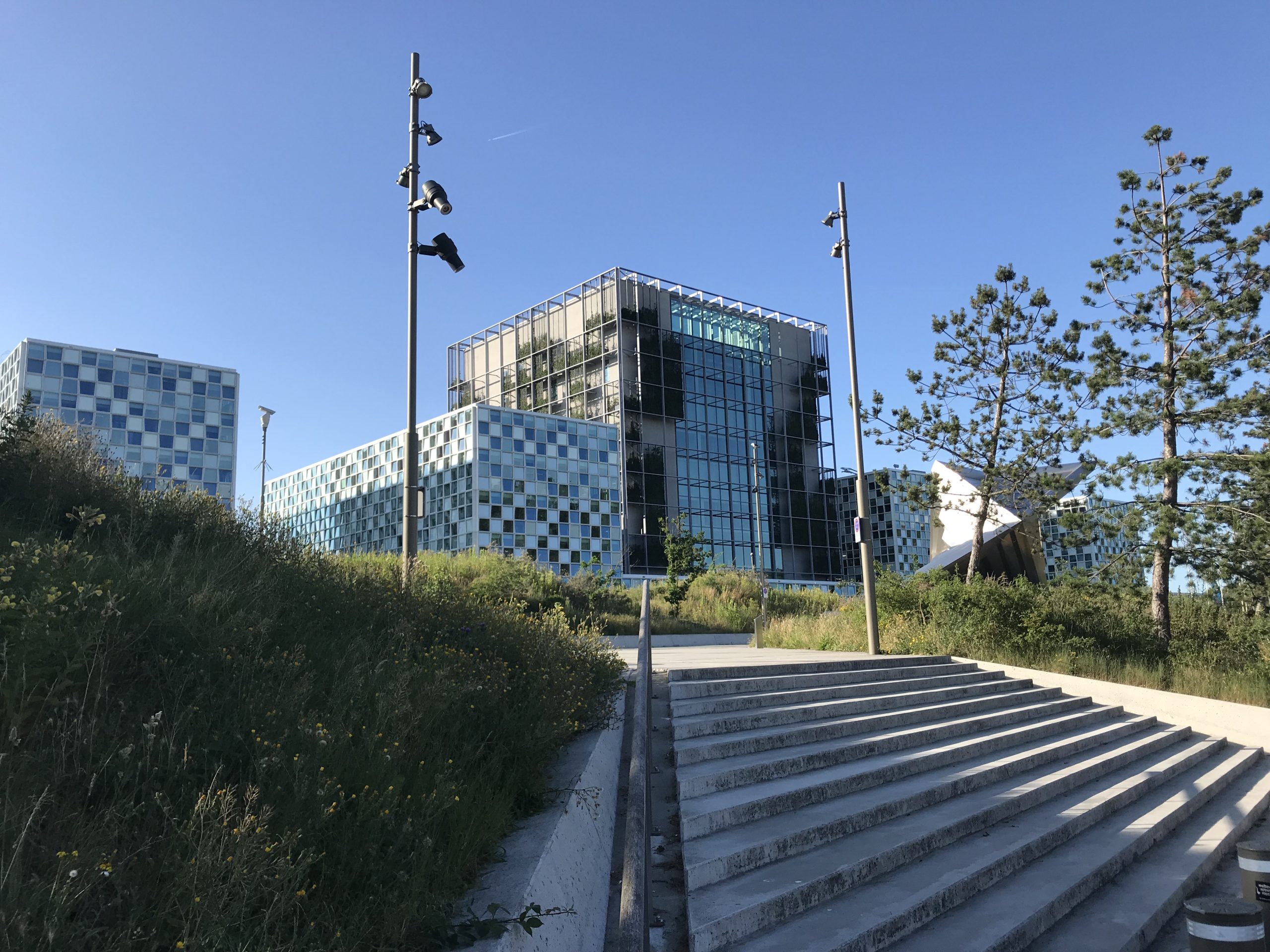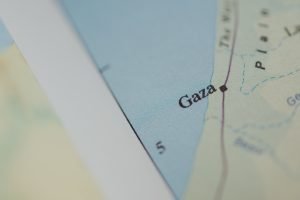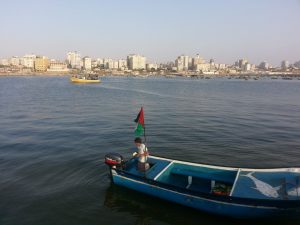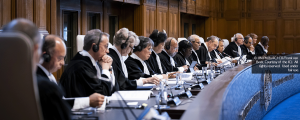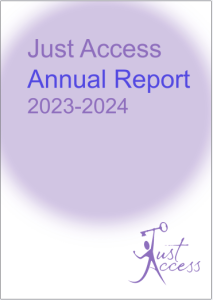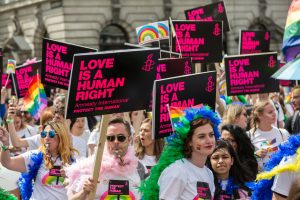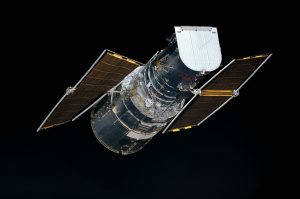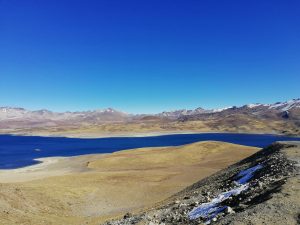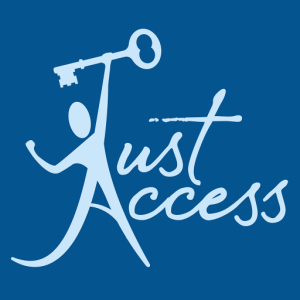
Just Access Team
Is the ICC biased?┬Ā With the ICC in the spotlight, hereŌĆÖs what you need to know.
On the 7th of February 2025, Donald Trump signed an Executive Order imposing sanctions on the International Criminal Court (ICC).┬Ā TrumpŌĆÖs sanctions are a response to the CourtŌĆÖs decision in November to issue arrest warrants for Israeli Prime Minister, Benjamin Netanyahu, and former Israeli Defence Minister, Yoav Gallant.┬Ā President Trump has claimed that the ICC is biased against the United States and Israel, and has called its arrest warrants against Israeli officials ŌĆśillegitimate and baselessŌĆÖ.
But what is the ICC, what does it do, and is it really biased against certain countries?┬Ā Read on to get answers to twelve key questions.
1. What is the International Criminal Court, and what does it do?
The International Criminal Court (ICC) is an international organisation.┬Ā It was set up in 1998 to provide a forum for the prosecution of the worst international crimes:┬Ā crimes against humanity, war crimes, and genocide.┬Ā Its mandate is to combat impunity by prosecuting perpetrators of these crimes, to ensure accountability and to offer redress for victims.
Today, 125 States are signed up to the Court, meaning that they accept its jurisdiction.┬Ā The Court can investigate and prosecute any crimes committed on the territories of these States, or committed by their nationals (wherever in the world they might be).
But hereŌĆÖs the rub:┬Ā The CourtŌĆÖs jurisdiction is subsidiary.┬Ā That means, the Court can only prosecute someone if their State fails to do so.┬Ā It only acts in those situations where a State is unable or unwilling to prosecute its nationals itself.
The ICC is headquartered in The Hague, the Netherlands.┬Ā Its Judges are elected by the States Parties to the Court, from among the highest echelons of the judiciary in those States, and are required to be ŌĆśpersons of high moral character, impartiality and integrity.ŌĆÖ
The ICCŌĆÖs mandate is to combat impunity for the worst international crimes, and it does so impartially. The integrity of its prosecutions is guaranteed by a strong legal framework, and detailed processes to protect the rights of defendants.
2. Is the ICC politically motivated in its prosecutions?
No.┬Ā The ICC is a neutral institution that operates based on evidence and legal criteria. ┬ĀIts actions are driven by the need to address severe violations of international law, not political agendas. The Court’s mandate is to serve justice, not to favour any political group or State.
In furtherance of that mandate, the Court investigates some of the worst crimes imaginable: war crimes, crimes against humanity, and genocide.┬Ā It works in close coordinate with national Courts and judicial organs to combat impunity, represent the interests of victims, and uphold the highest standards for a fair trial.┬Ā To date, ICC judges have issued sixty arrest warrants. Twenty-one people have been arrested and have appeared before the Court, while thirty-one people remain at large. Seven people have died without their cases being resolved, and charges have been dropped.
3. What measures are in place to ensure fairness and impartiality in the ICC's investigations?
The Court takes fairness and impartiality very seriously, and every step in the process of bringing a prosecution is designed to ensure that the very highest standards of fair trial guarantees are upheld.
The prosecutorial process begins with an investigation by the Office of the Prosecutor (OTP).┬Ā OTP is independent, and although States can refer situations to the Prosecutor, only the Prosecutor can decide to open an investigation.
OTP is staffed by more than 380 people with more than 80 nationalities, drawn from the legal profession, the police, forensic analysis, psychosocial work, diplomacy, and other key fields in their respective countries.┬Ā With a wealth of professional experience, the OTP is well-placed to conduct careful, expert, and impartial investigations.
If the Chief Prosecutor is convinced that an international crime has been committed, and that there is enough evidence to bring an individual to trial, the OTP can apply to the Court for an arrest warrant against any individual or individuals concerned.┬Ā The OTP has to convince the Judges that there are reasonable grounds to believe that the individual has committed a crime within the Court’s jurisdiction, and must meet a high standard of proof.
Before the case goes to trial, thereŌĆÖs another safeguard, however.┬Ā The OTP must convince the Judges in a pre-trial phase that there are ŌĆśsubstantial groundsŌĆÖ to believe that the individual committed the crimes concerned.┬Ā The OTP must present its evidence to the Judges in detail, and again with an obligation to meet a high standard of proof.
Finally, if the Court is convinced that itŌĆÖs justified, the case moves to trial.┬Ā The defendant has strong guarantees of their legal rights, including to choose their own defence counsel, to have available to them all documents and evidence relied upon by the prosecution, to introduce evidence which may prove their innocence, to examine and cross-examine witnesses, and to be presumed innocent until proven to be guilty.┬Ā All trials are held in public, except that witnesses may testify in closed sessions if there is a risk to their safety, and all court records and transcripts are published on the website of the Court to ensure transparency.
You can read more about the Office of the Prosecutor here.
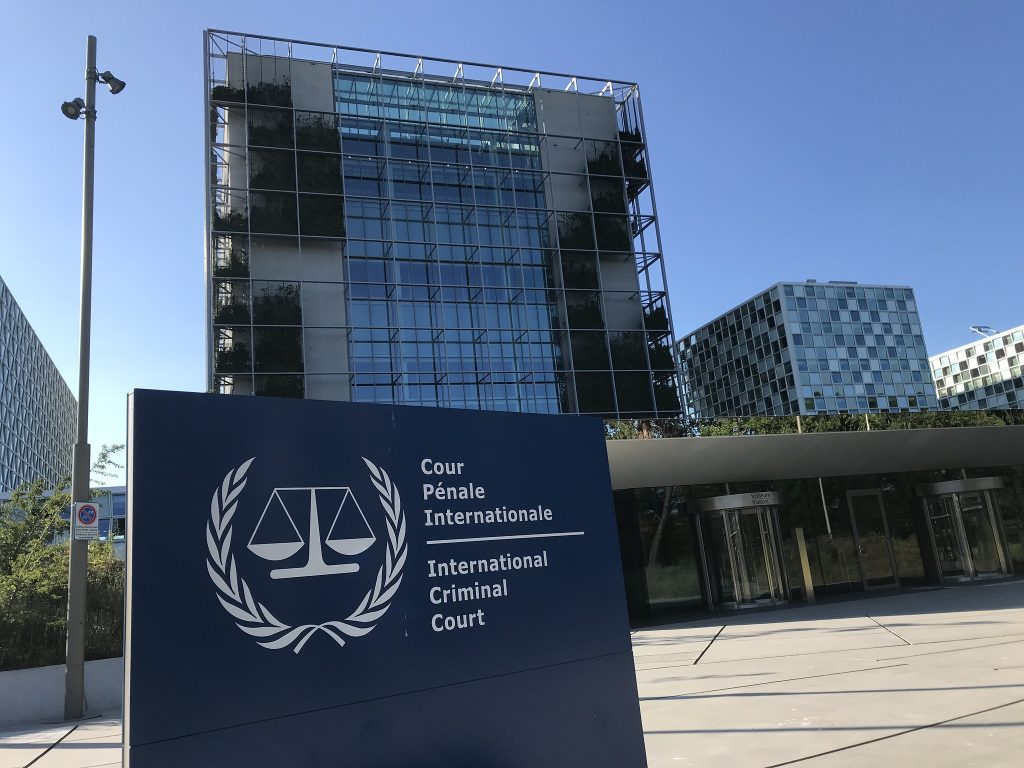
4. Why has the ICC focused on certain States and not others?
That means that the ICC will not prosecute someone if there is already a credible investigation ongoing before a domestic Court.┬Ā If a State is already investigating a war crime, crime against humanity, or genocide, the ICC must wait for the outcome of the domestic investigation before proceeding.
5. Why are most cases brought before the ICC from African nations? Does this suggest bias?
ItŌĆÖs true that the ICC has historically prosecuted more cases against African defendants than any others.┬Ā Partly, thatŌĆÖs a product of its time:┬Ā the Court was founded in 1998, at a time when the Rwandan Genocide (1994) was a very recent memory, and the second Congo war (1997-1999) was ongoing.┬Ā In 2003-2005, the worldŌĆÖs attention stayed focused on human rights abuses in Africa, with the Darfur Genocide.
ThatŌĆÖs not to say that the Court was right to stay focused on Africa:┬Ā there were many situations in African countries which needed the attention of the Court, but also many others which were worthy of the same treatment.┬Ā The Court has been rightly criticised for being too focused on African States in its early years.
In recent years, the Court has broadened its focus:┬Ā the OTP has opened investigations into the situation in Bangladesh/Myanmar (crimes committed against the Rohingya people of MyanmarŌĆÖs Rakhine province), as well as Afghanistan, Georgia, and the Philippines.┬Ā It is also investigating whether war crimes and crimes against humanity have been committed in Ukraine since 2013, and has issued arrest warrants in relation to the situation in the Occupied Palestinian Territories (specifically, Gaza).
The renewed focus of the Court is welcome: its focus must be the world, not just one continent.
6. How can we trust the ICC if it is accused of bias by certain governments?
The ICCŌĆÖs mandate is to combat impunity for the worst international crimes, and it does so impartially.┬Ā The integrity of its prosecutions is guaranteed by a strong legal framework, and detailed processes to protect the rights of defendants.┬Ā It operates within a framework of transparency, with documents and decisions publicly available, so that anyone can check for themselves whether the Court is following its own rules.
In pursuing its mandate, the ICC often prosecutes very powerful people.┬Ā Sadly, this can mean that it also attracts accusations of bias:┬Ā political accusations may be levied at the Court in an effort to undermine its credibility.
No institution is infallible.┬Ā An active and engaged public is the best way to guarantee that organisations such as the ICC conduct themselves in a way that is fair, impartial, and unbiased.┬Ā But there is no good evidence to believe that the ICC is biased.
Support our work!
We can only do our work thanks to the support of brave, passionate people like you!
Your donation will help us to keep fighting for human rights and access to justice for everyone, everywhere.
7. What is President Trump's position on the ICC, and why has he imposed sanctions?
President Trump has accused the ICC of ŌĆśillegitimate and baseless actionsŌĆÖ in response to the CourtŌĆÖs decision in November to issue arrest warrants against Israeli Prime Minister, Benjamin Netanyahu, and former Defence Secretary, Yoav Gallant.┬Ā Trump said the ICC ŌĆśabused its powerŌĆÖ by issuing the arrest warrants.
Trump appears to be reacting against the CourtŌĆÖs exercise of jurisdiction over Israeli citizens, given that IsraelŌĆölike the United StatesŌĆöis not a member of the Court.┬Ā Yet, the Court is able to exercise jurisdiction over Netanyahu and Gallant because the crimes concerned were committed on the territory of Palestine, which is a member of the Court.
The United States is concerned that the CourtŌĆÖs ongoing investigation into war crimes and crimes against humanity on the territory of Afghanistan could lead to arrest warrants against United States citizens.
8. What is the ICC's response to claims that it has biased prosecutions based on international power dynamics?
The ICC has condemned the decision by President Trump to impose sanctions against the organisation.┬Ā The United StatesŌĆÖ action, the ICC says, has the potential to ŌĆśharm its independent and impartial judicial workŌĆÖ, and it has pledged to ŌĆścontinue providing justice and hope to millions of innocent victims of atrocities across the worldŌĆÖ.
You can read the ICCŌĆÖs statement here.
9. How have other countries and international organisations reacted to President TrumpŌĆÖs sanctions on the ICC?
Countries around the world, as well as civil society groups, have condemned the decision by President Trump to impose sanctions on the ICC.
The President of the European Commission, Ursula von der Leyen, has strongly opposed the sanctions, saying that the move endangers the search for justice and accountability in Ukraine and elsewhere.
A group of seventy-nine member States of the Court agreed; they issued a joint statement reaffirming their ŌĆścontinued and unwavering support for the independence, impartiality and integrity of the ICCŌĆÖ.
Civil society groups have also condemned the decision.┬Ā The Coalition for the ICC, an alliance of civil society organisations which supports the CourtŌĆÖs work, has issued a statement opposing the sanctions and urging the CourtŌĆÖs member States to stand behind the Court and its work.┬Ā More than 140 civil society organisations, including Just Access, have co-signed the statement.
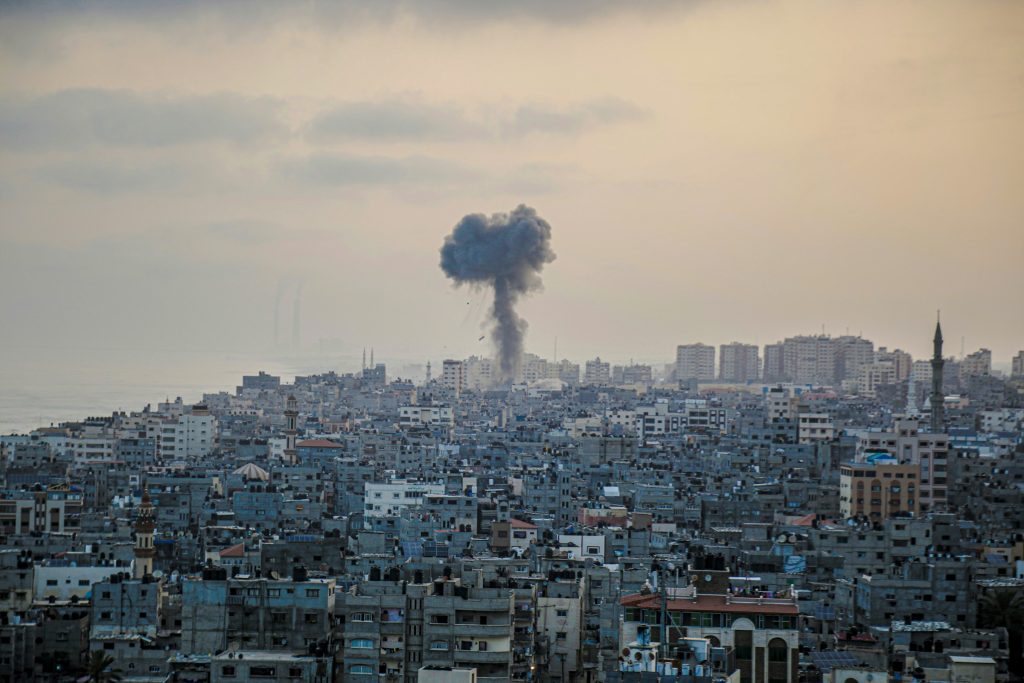
10. Why has the ICC issued arrest earrants against Benjamin Netanyahu and Yoav Gallant?
The State of Palestine referred the situation on its territory to the Court for investigation on the 1st of January 2015.┬Ā The ICC Prosecutor opened a preliminary investigation into the situation in the State of Palestine on the 16th of January 2015, and a formal investigation began on the 3rd of March 2021.
On the 7th of October 2023, Hamas launched an attack on Israel in which approximately 1,200 people were killed and around 240 people were taken hostage.┬Ā There are strong reasons to believe that HamasŌĆÖs actions on the 7th of October amounted to war crimes and crimes against humanity.
In response, Israel ordered a ŌĆścomplete siegeŌĆÖ of the Gaza Strip on the 9th of October.
In the years since, Israel has conducted thousands of air strikes on the densely populated Gaza strip, leaving more than 60,000 people dead, at least 17,000 of whom are thought to be children.┬Ā Around sixty per cent of buildings in Gaza and almost seventy per cent of the roads have been damaged or destroyed.
There is strong evidence that war crimes and crimes against humanity have been committed in Gaza.
There is strong evidence that war crimes and crimes against humanity have been committed in Gaza, including through targeted Israeli attacks on GazaŌĆÖs healthcare system, and a policy of starvation against the Gazan population.┬Ā Amnesty International has concluded that the situation in the Gaza strip amounts to genocide.
The ICC has issued an arrest warrant for Mohammad Deif, leader of the Izz al-Din al-Qassam Brigades, a military organisation affiliated with Hamas, for crimes committed in Israel on the 7th of October 2023.┬Ā It also issued arrest warrants for serving Israeli Prime Minister, Benjamin Netanyahu, and former Israeli Defence Minister, Yoav Gallant, for crimes against humanity and war crimes committed from the 8th of October 2023 until at least the 20th of May 2024.
You can read more about the ICCŌĆÖs investigation into the situation in the State of Palestine here.
Read more from Just Access on the situation in Gaza:
11. What is the situation in Gaza now?
Although the ceasefire of the 15th of January 2025 continues to hold, the situation in Gaza remains dire.┬Ā After more than 460 days of war, the infrastructure of Gaza has been devastated.┬Ā Ninety per cent of GazaŌĆÖs population has been displaced, according to the UN Office for the Coordination of Humanitarian Affairs, and there is a critical lack of shelter, food, medical supplies, and clean water.┬Ā The United Nations Relief and Works Agency for Palestinian Refugees has especially highlighted the desperate situation for GazaŌĆÖs children.
The people of Gaza urgently need humanitarian support to help safeguard their lives and their families, and to begin to rebuild GazaŌĆÖs healthcare system and other infrastructure.
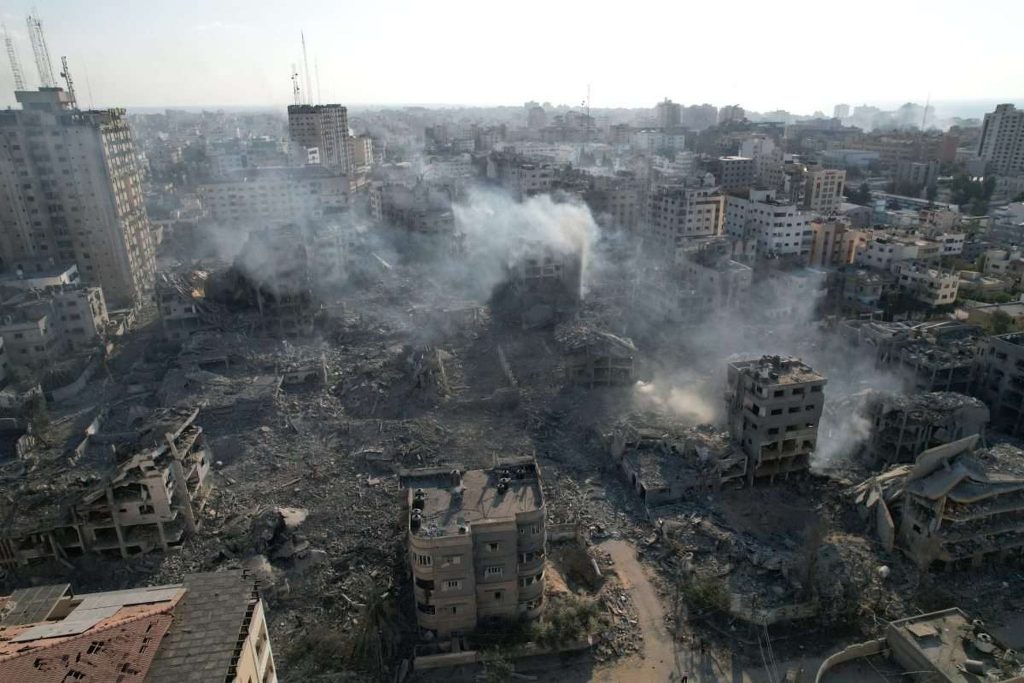
12. What can I do?
Every one of us can make a difference.
From donating to humanitarian and aid organisations working in Gaza, to supporting calls for accountability for crimes against humanity and war crimes, every contribution matters ŌĆō no matter how small.
The ICC plays a critical role in helping to combat impunity for the crimes committed in Israel and Gaza.┬Ā At a time in which the ICC is under attack, we all have a critical role to play, too, in defending the impartial exercise of legal processes.┬Ā Take to social media, write to your elected representatives, or simply talk to your friends and family about the importance of an independent International Criminal Court.
Your voice matters.
Have more questions? Leave us a comment!
Subscribe to the Just Access newsletter
Don’t miss any of our great blog posts, or any of our great content!
Stay up to date with our work by subscribing to the Just Access Newsletter (six mailings per year).


